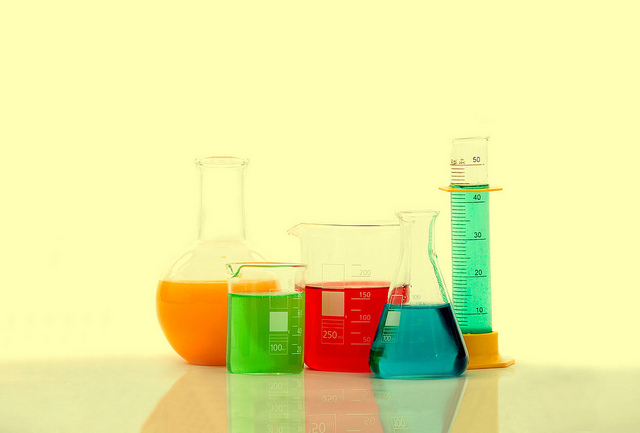
Have you ever sat in a Maths class wondering why you will ever need to be able to do long division without a calculator? Or silently cursed your Geography teacher while learning about the formation of oxbow lakes? And History?
That’s all in the past and irrelevant, isn’t it? In this series of articles we will look at some of the subjects we learn at school, and try and answer the question: What’s the point in learning… Chemistry?
Last time we looked at uses of Biology, both in day to day life, and in careers. Today we will continue with the sciences but focus on Chemistry, which basically answers the following question: what is stuff made of? So how is Chemistry useful in our day to day lives? How can we put the skills learned in Chemistry to use?
Housework
Hear me out. I know the cleaning isn’t at the top of everyone’s list of fun things to do, but it is well up there on the list of most people’s things they have to do, so why not try and make it more interesting. What goes in to the things we use to do our dishes and clean the windows?
Why is coca cola so good at cleaning the loo and grubby coins? And why do some people swear by vinegar to clean everything from windows to kettles? When we study Chemistry we learn all about the acidic and alkaline properties of chemicals, and how they react with other chemicals.
Cooking
Why does water boil? Why do some liquids boil at different temperatures? Why does pasta only cook in boiling water? What happens when you freeze food? Why do some foods, like rice and bread, go sweet if you chew them for long enough?
When you use yeast, you have to know how much sugar to add, and how hot the water should be. Cooking is chemistry, and understanding how food works means we can do much more with it.
Safety
During Chemistry practical sessions we use fire and gas, as well as all types of chemicals to conduct experiments. Learning how to be safe around fire is a life skill which will come in handy and also possibly save your or someone else’s life. Likewise learning what happens when certain chemicals are mixed together or heated up, even common things used in household products or clothes, can help you prevent accidents in the home or workplace.
Fuel
Or, the natural resources from which fuel comes. Oil, natural gas, coal, wood and nuclear energy. What heats our homes and allows us to drive our cars? How limited are these resources? What effect do the collection and transformation of these resources have on the world around us?
You have possibly heard of global warming, or of the difficulties in producing fuel. Some people are against nuclear power, but others think it is the way forward.
Chemistry doesn’t go too far into the politics of resources, there isn’t the time. But it does explain what the resources are, how they are used and their impact on the world. This isn’t only interesting on a scientific level, but provides the foundation for plenty of understanding of current events.
Skills
In Chemistry we analyse, measure, observe and use what we see to solve problems. We learn to put ideas, theories into practice. We may have an idea how something works, but it is important to step back and be objective when testing our theory. These are all scientific skills that are used outside the classroom every day.
Jobs That Use Chemistry
So, a better knowledge of the world around us, what things are made of and how they interact with other stuff and gaining lots of scientific skills are some of the reasons we study Chemistry at school. But what careers will use the skills we learn at school. Let’s look at three Chemistry related careers more closely:
Medicine
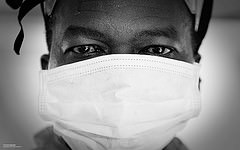 It may surprise you to know that Chemistry is actually as if not more important than Biology when wanting to go into medical careers. Doctors and pharmacists need to know how the body works, but they also need to know how to fix it, and very often fixing it uses medication. And all medication is made up of various combinations of chemicals, which work with the chemicals that we have in our bodies to fix whatever problem we are having.
It may surprise you to know that Chemistry is actually as if not more important than Biology when wanting to go into medical careers. Doctors and pharmacists need to know how the body works, but they also need to know how to fix it, and very often fixing it uses medication. And all medication is made up of various combinations of chemicals, which work with the chemicals that we have in our bodies to fix whatever problem we are having.
Food Scientist
 These are the people who study food. Not in a kitchen but in a lab. They are responsible for the flavours of the crisps you eat, or the precise combination of ingredients in ready meals, chocolate bars and ice cream. They look at how nutritious, or not, food is, if it is safe to eat, and how it can be produced and stored without dangerous bacteria developing.
These are the people who study food. Not in a kitchen but in a lab. They are responsible for the flavours of the crisps you eat, or the precise combination of ingredients in ready meals, chocolate bars and ice cream. They look at how nutritious, or not, food is, if it is safe to eat, and how it can be produced and stored without dangerous bacteria developing.
Agricultural food scientists look at how crops can be treated to grow better, and what should go in animal feed to make tastier eggs, meat and milk. In fact, pretty much any food you buy at the supermarket has been checked, studied, developed, perfected, possibly even created from scratch by a food scientist.
Perfumist
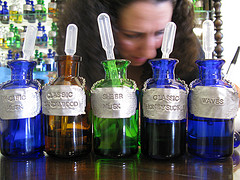 It would be nice to think that perfumes are made from mixing together rose petals and lavender and other sweet smelling but natural products, but, although there may sometimes be natural essential oils from fruit, flowers and spices in perfumes there are also 50-150 other ingredients.
It would be nice to think that perfumes are made from mixing together rose petals and lavender and other sweet smelling but natural products, but, although there may sometimes be natural essential oils from fruit, flowers and spices in perfumes there are also 50-150 other ingredients.
Today’s perfumes are created in labs, by scientists who have great knowledge of chemistry, as well as an interest in perfume.
Here are some more career options for those of you interested in Chemistry to think about: research and development in very many fields such as the military, food and drink, cosmetics, pharmaceuticals, packaging, fuel and biofuels; science and technical writing; governmental policy including in defence, the environment and health.

Rebecca is a freelance writer, translator and coach who lives in France.
In her spare time, she enjoys history, cooking, travelling and reading.
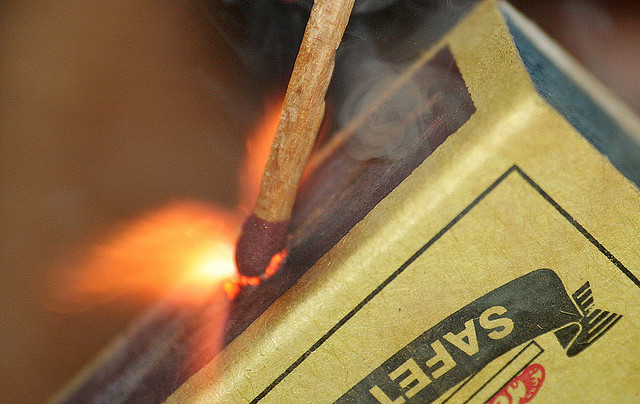

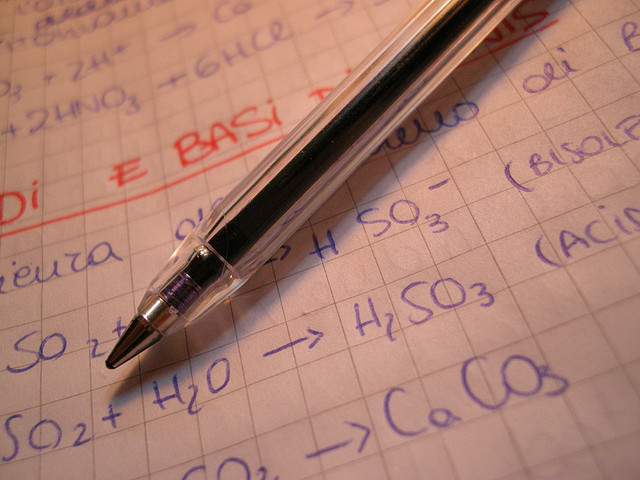




One comment
Leave a reply →